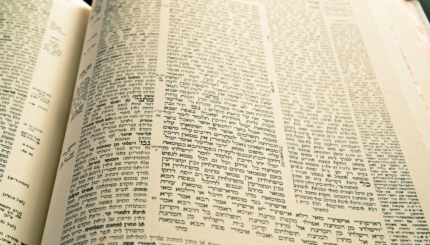Last month, my daughter celebrated her Bat Mitzvah. In the months before her Bat Mitzvah we moved from the Boston-area Jewish community (where we had spent the past fourteen years) to Shepherd Park, Washington D.C and a day school my children had barely known existed. Following our move, planning a Bat Mitzvah was exactly what we all did not have time or energy for. Before our move, my daughter and I had studied some Mishnah together and participated in the Matan Bat Mitzvah program, so I considered suggesting that we just throw her a small party, opting out of the difficult process of defining and negotiating a meaningful Bat Mitzvah ritual for her. No sooner had I formalized the idea, when I realized that that was exactly what had happened to me when I was her age. My parents had offered to throw me, the youngest child and the only girl, a party of no religious significance for my Bat Mitzvah, and only if I really wanted it. I recognized the cue and had opted out. I had felt that loss. For me, the loss was realizing that my Bat Mitzvah was not Jewishly significant and that it need not be celebrated.
In stark contrast, my older son had studied with a local rabbi leading up to his Bar Mitzvah, learned to read Torah under his father’s tutelage, prepared and delivered divrei Torah, led the prayer service, and read Torah on the day of his Bar Mitzvah. He always expected to do those things; and we also expected them of him, and were so proud to fete him. I realized that my daughter, and all of our daughters, deserve the same high expectations and just as importantly, our admiration and celebration of their becoming members of our adult Jewish community.
My daughter and I, after much discussion and with the help of the Rabbi, the Maharat and my husband, navigated among the diverse and well thought out Bat Mitzvah options available in our Shepherd Park community. We decided to celebrate her Bat Mitzvah during a women’s mincha service on Shabbat afternoon where my daughter led the service, read from the Torah, and delivered a d’var Torah. Her service followed the regular mincha service at synagogue which meant that both men and women were present at the service, although only women were invited to actively participate. This allowed all of my husband’s large, non-Orthodox, family to attend, something which was very important to both my daughter and my husband’s family. It was celebratory and beautiful in every way, not the least of which was her grace and competence. But in planning this celebration, we realized that it would not have felt complete if we did not also celebrate her becoming part of our regular community. So we decided to celebrate on Shabbat morning as well.
I admit, when I was first asked if my daughter would deliver the d’var Torah in synagogue on Shabbat morning, I was ambivalent because there did not seem to be any meaningful space within the Shabbat morning service for her to mark the occasion of becoming a Bat Mitzvah. I realized though that we celebrate each baby joining our community and each boy becoming a Bar Mitzvah as a community, with singing and sometimes dancing. And so, on Shabbat morning, after the mi sheberach prayers, and before the Musaf service, my daughter stood and recited a special prayer that we had studied during the Matan mother-daughter Bat Mitzvah program. It marked her transition to becoming a full member of the community and asked God for guidance and help. Afterwards, my husband and I blessed her and the congregation broke out in song and dance – with all the women near the front of that section dancing around her and celebrating her entrance into the congregation. After the conclusion of the morning service, she delivered a d’var Torah to her and our whole community.
As my husband said, when he spoke following the mincha service that my daughter led so beautifully, we hope that the skills our daughter developed in preparation for her Bat Mitzvah – leading prayers, preparing divrei Torah, studying and reading Torah – are skills she will continue to hone as part of her continued Jewish growth. But as importantly, I hope that she can internalize the joy she witnessed as her community celebrated the significance of her becoming a Bat Mitzvah. Our daughters deserve that much.
Moved by this post? Join the conversation through MyJewishLearning’s weekly blogs newsletter.
Mishnah
Pronounced: MISH-nuh, Origin: Hebrew, code of Jewish law compiled in the first centuries of the Common Era. Together with the Gemara, it makes up the Talmud.
Shabbat
Pronounced: shuh-BAHT or shah-BAHT, Origin: Hebrew, the Sabbath, from sundown Friday to sundown Saturday.
Torah
Pronunced: TORE-uh, Origin: Hebrew, the Five Books of Moses.



